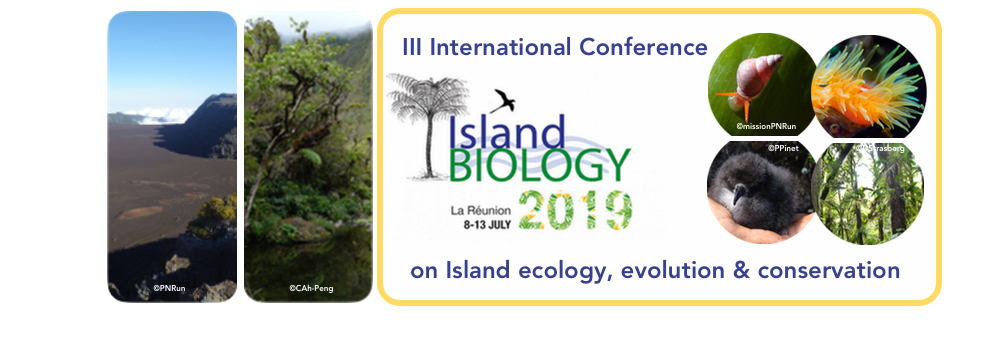Cats are opportunistic predators responsible of the collapse of many animal populations on islands. Seabirds are particularly vulnerable because of their lack of any anti-predator behaviour. The site of Grande Anse (South of Reunion Island) holds the main breeding colony of wedge-tailed shearwaters (Ardenna pacifica) of the island and a colony of white-tailed tropicbirds (Phaethon lepturus). It is a touristic area with takeaways and restaurants surrounded by habitations. The area is frequented by both domestic cats and feral cats. Our goal was to investigate the behaviour of domestic and feral cats and their respective impacts on seabirds. We used four complementary methods: fine-scale tracking of cat foraging movements with GPS collars, automated observation of seabird nests with camera traps, cat scat analysis and the wedge-tailed shearwater's breeding success. The results show that domestic cats have small home ranges and do not forage at seabird colonies. Feral cats on the other hand have wider home range and frequently forage at seabird colonies. Cat tracking also revealed that feral cats very frequently foraged at the takeaways and restaurants, taking advantage of food garbage. The same cats alternatively forage at food garbage and at seabird colonies. Camera trap surveys showed that feral cats were very abundant at seabird colonies and some were seen attacking shearwaters. The breeding success of wedge-tailed shearwaters was low (39%). Scats analysis revealed that cats fed mainly on food garbage, rats, insects and occasionally seabirds. These results were confirmed by the finding of several dead shearwaters at the colony, most of them probably killed by cats. Our results show that domestic cats do not have a direct impact on seabirds. Feral cats on the other hand threatened coastal seabirds. Furthermore, takeways and restaurants represent an abundant and predictable source of food for feral cats and contribute to the high density of cats at seabird colonies. We propose adapted management guidelines for seabird conservation in this context: a better management of waste at restaurants and takeaways, a permanent control of feral cats and a sterilization campaign of domestic cats to avoid these cats to reinforce feral cat population by breeding.

|
|
|
|
Behavioural ecology and impact of feral and domestic cats at a coastal seabird colony of Reunion Island: implications for conservation
1 : Ecologie marine tropicale dans les Océans Pacifique et Indien
(ENTROPIE [Réunion])
* : Corresponding author
Centre National de la Recherche Scientifique : UMR9220, Université de la Réunion, Institut de Recherche pour le Développement
UNIVERSITE DE LA REUNIONFaculté des Sciences et Technolo15 Avenue René CasinBP 9200397744 ST DENIS CEDEX 9 -
France
|
| Online user: 61 | RSS Feed |

|
 PDF version
PDF version